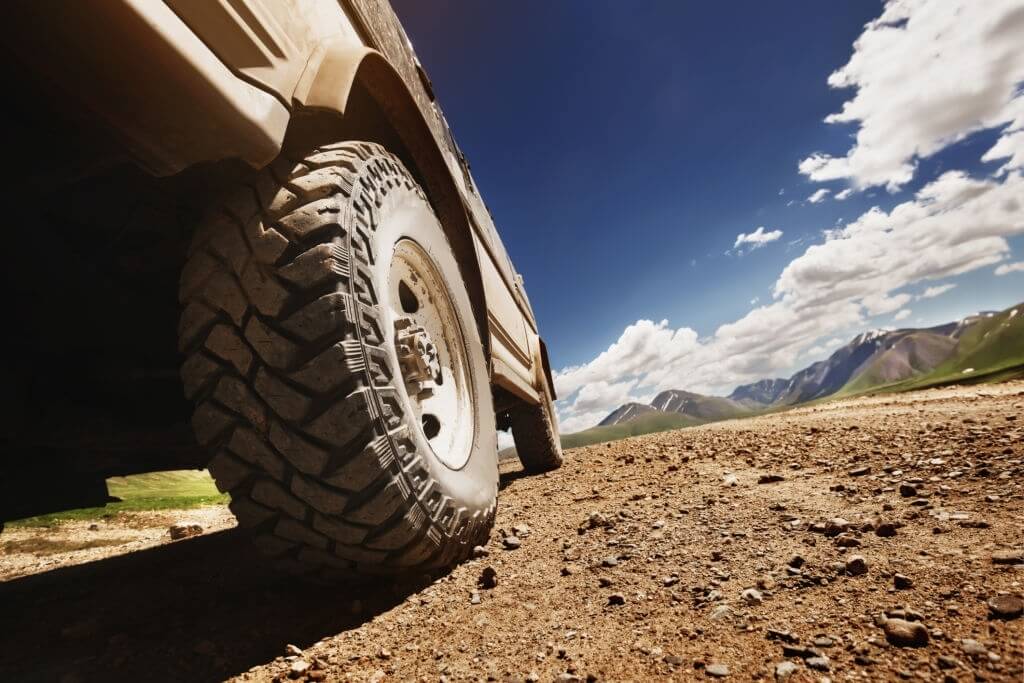When shopping for an SUV, there are a couple of factors to consider; factors like size, fuel efficiency, technological features, and safety would probably be a priority. But if you’re on a budget, then definitely you will be forced to watch out for the price as the cost of an SUV can go beyond 6 figures for the more luxurious models.
It can also get tricky for some buyers, who are stuck in a dilemma of 4×4 SUV vs 4×2 SUV.
Since everyone wants better control on different kinds of roads and weather conditions, selecting the best drive train is a must.
There are a number of variables that come into play when deciding whether to buy a 4×4 SUV or a 4×2 SUV. While anyone can simply say you should go for one over the other. We believe you may want to know what they are and why they matter.
So in this article, we’ll cover all there is to know about the differences between a 4×4 and 4×2; what exactly 4×4 SUV and 4×2 SUV mean, and the pros & cons of each drivetrain option to help you decide on which type of SUV to purchase.
Without further ado, let’s jump right in

What is a 4×4?
If you probably never knew, all 4 wheels on a vehicle are not always actually being “driven”.
4×4 and 4×2 SUVs refer to the type of drivetrain on the SUV. Depending on the type of drivetrain, drive and torque will be delivered to certain wheels on the vehicle.
A “4×4” system for vehicles means there are 4 wheels total and 4 wheels that are driven. On a 4×4 drivetrain vehicle, all four of the wheels are being given torque. All-Wheel Drive(AWD) and Four-Wheel Drive(4WD) are 4×4 drivetrains.
Most Sport Utility Vehicles and trucks are available with a 4×4 drivetrain and some vehicles like the Jeep Wrangler, and Ram Power Wagon comes standard with a 4×4 drivetrain.
What is a 4×2?
A “4×2” system for vehicles means there are 4 wheels total and 2 wheels that are driven. A 4×2 drivetrain vehicle is a vehicle that has a two-wheel-drive (2WD), that is, only 2 of the wheels are being given torque.
This can either be given to the front wheel axis or the rear wheel axis. You may have heard of the terms Front-Wheel Drive(FWD) and Rear-Wheel Drive(RWD). The specific type of 4×2 drivetrain is what these are referencing.
The 4×2 is the same as 2wd and it is more common than a 4×4 on almost all cars, trucks, and SUVs.
- You won’t believe people buying SUVs and Minivan still make these mistakes
Pros & cons of each drivetrain
What are the Pros of a 4×4 SUV?
Choosing a 4×4 SUV over a 4×2 SUV has quite a few advantages.
The first and foremost is that 4×4 vehicles have increased traction and stability which makes them better at handling bad weather conditions. With a 4×4 SUV, you’ll have a much easier time in rain, snow, or ice.
If you love off-roading and adventuring or have to work in an off-road environment, a 4×4 SUV would be a better choice. The All-Wheel Drive (AWD) and Four-Wheel Drive (4WD) have much more capable of off-roading conditions
- Increased Traction and Stability
- Great Off-Roading Capability
- Better in adverse weather conditions such as rain, snow, or ice.
- Higher resale value
What are the Cons of a 4×4 SUV?
While 4×4 Sport Utility Vehicles can be great at a lot of things, it comes with a couple of drawbacks.
First of all, 4×4 SUVs have a lower towing capacity and lower fuel economy due to the increased weight of the vehicle.
Also, they are more expensive to buy and insure when compared to a 4×2 counterpart.
- Lower Towing Capacity
- Lower Fuel Economy
- Higher MSRP
- Higher Insurance Cost
It’s understandable that increased production costs can result in price differences. But what’s surprising is the hike in insurance price as Insurance companies believe its nature to operate in bad weather makes it more likely to get in an accident.
- These badass police SUVs will make you fear the law! MUST SEE!
What are the Pros of a 4×2 SUV?
The cons of a 4×4 SUV make a 4×2 SUV a better choice for many.
As you already guessed, they are less expensive than a 4×4 SUV. Insurance companies believe that 4×2 SUVs are less likely to get in an accident, so the insurance cost is lower.
4×2 SUVs are not as heavy as 4×4 SUVs, as such, the former has superior towing capacity and fuel economy.
- Lower Purchase Cost
- Lower Insurance
- Higher Towing Capacity
- Better Fuel Economy
What are the Cons of 4×2 SUV?
4×2 SUVs will do great on a normal road but they lack off-road capabilities and are much weaker than their 4×4 counterpart.
Unfortunately, you don’t be able to enjoy off-roading and adventuring with a 4×2 SUV.
They will have less traction and stability which means they can’t handle off-roading, rain, snow, or ice, as well as a 4×4 SUV can.
- Less Traction and Stability
- Not as much Off-Road Capability
- Not as good in rain, snow, and ice

Frequently Asked Questions
Can you take a 4×2 on the beach
As you already know, 4×2 vehicles don’t do so much well off-road. You can drive them on sand but It’s a gamble going to the beach with one.
If you plan on driving on the main area of the beach where everyone drives their car, you should be fine
Can a 4×2 be converted to 4×4?
Yes, 4WD can be added to an SUV that was originally produced with a 2WD drivetrain, especially if a 4-wheel drive version is offered by the manufacturer.
But the process would be expensive.
The mounting holes, wiring harness, and certain brackets might already be in place of the 2WD model, however, some other factors such as drivetrain, suspension, transmission, electronics, engine power, and transfer case, should be taken into consideration.
If you have a 4×2 and you’re certain you want to convert to a 4×4, all you need is time, patience, and of course money.
Don’t forget to check out the 7 SUV Interior Cleaning Tips that are sure to make your ride sparkle.




